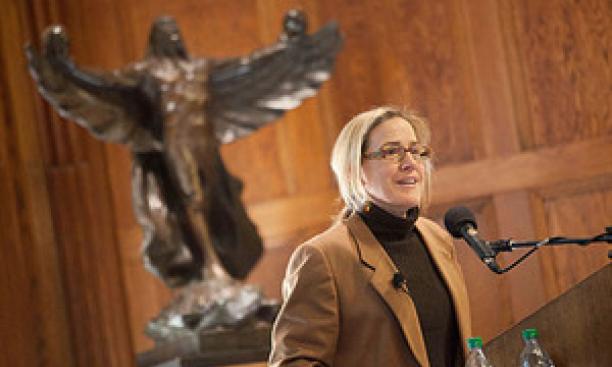

Historian Caroline Elkins ’91’s dissertation research about the 1950s and ’60s Mau Mau rebellion in Kenya — and the related atrocities committed by British colonial officers — started her on a decade-long path of discovery. She learned Swahili and Kikuyu and conducted hundreds of interviews with elderly survivors of British detention camps. To gain their trust, Elkins “drank a lot of milky sweet tea and petted a lot of cows,” she told PAW’s Kathryn Beaumont ’96 in 2005, the year that she published the groundbreaking book Imperial Reckoning: The Untold Story of Britain’s Gulag in Kenya. The book later earned Elkins the Pulitzer Prize for general nonfiction.
This week, Elkins’ work earned even more significant recognition when the British government made an unprecedented apology to the rebels from the Kikuyu tribe and completed an out-of-court settlement with thousands of torture victims.
Elkins, a history professor at Harvard, was on hand in Nairobi for the historic announcement. “There was a news conference that lasted nearly two hours,” she told the Harvard Gazette. “Several hundred claimants were there. There were tears of joy, tears of sorrow. There was singing, dancing. It was really a deeply emotional experience on many levels.”
While Elkins called the experience validating and humbling, she also added that the history of British colonialism may include other unreported atrocities. She told NPR that historians have evidence “that the systematized violence that happened in Kenya was honed and brought throughout the empire, from Palestine to Malaya to Kenya to Cyprus to Aden to Northern Ireland.”
Do you have a nominee for Tiger of the Week? Let us know. All alumni qualify. PAW’s Tiger of the Week is selected by our staff, with help from readers like you.
